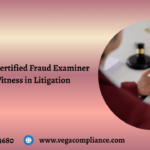In the fast-paced financial landscape, boutique investment banks and independent advisors deliver sharp insights, deep expertise, and personalized service. Still, this entrepreneurial drive has to navigate a maze of complex federal and state regulations. A simple mistake around registration can bring major setbacks, putting a promising firm’s future at risk before it really gets started.
For finders, agents, and advisors, doing well means more than just delivering great service; it also means keeping the regulatory details in check. The boundary between offering strategic advice and crossing into regulated territory is often thinner than many realize. This guide from VEGA Compliance is designed to make it easy to understand when registration is necessary and how to establish a compliant and successful investment banking practice.
Key Regulators and Governing Acts: SEC, FINRA, and the Advisers Act
Before we get into the details of specific licenses, it is important to understand who the key players are and the rules they are responsible for.
- The Securities and Exchange Commission (SEC): This is the primary federal regulatory agency that plays the leading role in overseeing the securities industry. Almost all large investment advisers and all broker-dealers need to be registered with the SEC.
- The Securities Act of 1933: This mandates that any offer or sale of securities conducted through the means or instrumentalities of interstate commerce must be registered with the SEC, unless a statutory exemption applies. The phrase “means and instrumentalities of interstate commerce” is interpreted very broadly, making it nearly impossible to avoid the Act’s application. Even limited use of interstate communications – such as telephone calls or mail – will generally bring the transaction within the scope of the statute.
- The Exchange Act of 1934: This regulates the secondary trading of securities and establishes the framework for ongoing disclosure, market oversight, and antifraud enforcement. Under Section 15(a) of the Act, any person or firm engaged in the business of effecting transactions in securities for the account of others must register as a broker-dealer with the SEC and become a member of a self-regulatory organization such as FINRA. This requirement applies broadly to entities providing investment banking or capital-raising advisory services when such activities involve the solicitation, negotiation, structuring, or execution of securities transactions, or when transaction-based compensation is received. As with the ’33 Act, the use of any means or instrumentalities of interstate commerce – such as email, telephone, or electronic communications – brings these activities within the scope of the Act and thus subjects unregistered participants to SEC and FINRA enforcement authority.
- The Investment Advisers Act of 1940: This is the key federal law that sets the rules for how investment advisers operate. It explains who counts as an “investment adviser,” the registration rules, and the duty advisers owe to act in their clients’ best interests.
- FINRA (Financial Industry Regulatory Authority): While not part of the government, FINRA is a self-regulatory organization supervised by the SEC and empowered to regulate broker-dealer firms and their registered representatives. Think of it as the gatekeeper for the industry, ensuring everyone plays by the rules, including passing their licensing exams.
Understanding these key regulator traits is the starting point for knowing your obligations.
The Two Primary Licenses: IAR vs. Broker-Dealer
A financial firm typically recognizes two generally distinct, but sometimes overlapping, regulatory paths. Confusing them is a mistake many make, and it can be an expensive one.
- Investment Adviser Registration (IAR): The “Fee-for-Advice” Model. If your business involves giving paid advice about investing in securities, but not investment banking, per se, you’re likely considered an investment adviser. Investment advisers help investors structure their portfolios and act as a fiduciary for those investors, in exchange for a fee.
- Broker-Dealer Registration: The “Transaction-Based” Model. If your work involves “effecting transactions in securities” for clients, you are acting as a broker-dealer. This includes helping facilitate trades in the secondary market, of course, but also includes raising capital through private placements or working as a placement agent. Most of the time, payment comes through a transaction-based fee, like a success fee or commission. In fact, there is strong guidance over many years that confirms the registration requirements (Section 3(a)(4)(A) and Section 15(a)(1) of the Securities Exchange Act of 1934).
Requirements for Registration and Licensing
Advisory and capital-raising activities – such as soliciting investors, structuring, and negotiating securities offerings on behalf of issuers – are highly regulated in the United States. Federal statutes require that any entity or individual performing these services generally be registered as a broker-dealer with the SEC and licensed appropriately through FINRA, with its principals required to sit for an exam and register themselves as Series 79 or 82 (Investment Banking representatives or Private Securities Offerings Representatives, respectively).
These requirements are well-known in the investment banking industry and there are many documents from the SEC, FINRA, and law firms describing these rule requirements. Although issuers may rely on various exemptions from registrations themselves, investment bankers are not exempt from their own registration obligations.
When is Broker-Dealer Registration Required?
This is a common area of confusion, especially for individuals acting as “finders” or “business brokers.” The SEC has stepped up its enforcement efforts around unlicensed broker activity.
The Core Test: Are You “Effecting Transactions” for Others?
This means you are in the business of handling securities trades on behalf of other people.
Key Triggers for Broker-Dealer License
- Facilitating Capital Raises: Helping companies secure funding through private placements, PIPE (Private Investment in Public Equity) transactions, or similar securities offerings.
- Acting as a Placement Agent: Reaching out to investors on behalf of a company looking to raise capital.
- Earning Transaction-Based Success Fees: This is a major indicator for regulators. If you’re getting paid based on the capital raised, you’re acting as a broker and need to be licensed.
- The “Finder” vs “Broker” Dilemma – A Critical Legal Distinction: A “finder” simply connects potential investors with a company and earns a pre-determined, flat fee for making the introduction, regardless of its success. A “broker” is actively involved in reaching out to clients, negotiating deals, or carrying out the transaction. The boundary isn’t always very clear. Generally speaking, if you are part of conversations about the deal’s terms or structure, you’ve likely stepped beyond being a “finder” and into “broker” territory, which means you need a license.
The Consequences of Non-Compliance: Risks of Unlicensed Activity
The risks of working without the required license could not be higher.
- SEC Enforcement Actions: The SEC can pursue civil actions that result in cease-and-desist orders, which can immediately halt your business operations.
- Financial Penalties: You might have to pay steep fines and disgorge (give back) every fee earned through unlicensed services – plus interest on top.
- Reputational Damage: A public enforcement action can cause lasting damage to the trust you have worked hard to build with clients and partners.
- Criminal Charges: For instance, if there’s willful fraud involved, the Department of Justice can bring criminal charges that may result in imprisonment.
At VEGA Compliance, we often advise our clients that investing in proactive compliance is always much cheaper than dealing with problems later.
FAQ: Answering Your Top Registration Questions
Do I need a license to be a financial consultant for mergers or acquisitions?
Almost certainly, yes. Providing M&A advice for a fee squarely places you in the definition of an investment adviser, requiring an IAR registration.
What is the difference between a finder’s fee and a broker’s fee?
The difference is not in the fee itself but in the activities performed to earn it. A flat fee for a simple introduction may be a finder’s fee. A fee contingent on the successful closing of a securities transaction is a classic broker’s fee and requires a license.
Can a boutique firm operate without any SEC registration?
It is possible, but the activities would be severely limited. The firm could only provide advice that does not concern “securities” or operate under a very narrow exemption. For most firms engaged in traditional investment banking, some form of registration is necessary.
What is the Series 79 exam, and who needs to take it?
The Series 79 is the qualifying exam for investment banking representatives at a broker-dealer firm. It tests knowledge on topics like M&A, debt and equity offerings, and financial analysis. Anyone who will be engaged in these activities for a licensed broker-dealer must pass it.
Conclusion: Building a Compliant and Successful Practice
Investment banking registration can be complex, but with the proper guidance, it’s absolutely manageable. The best way to tackle it is by staying proactive and well-informed from the start. Understanding when and why you need to register as an IAR or Broker-Dealer is essential to protecting your firm from compliance risks.
The most important takeaway is this: When in doubt, seek qualified legal and compliance counsel. The details around the ‘finder’ exemption and your fee model can be tricky – and usually need a closer look from a compliance expert.
At VEGA Compliance, we focus on helping smaller financial firms navigate complex regulatory requirements. We work with you to identify your registration obligations, develop the right policies, and establish a compliance framework that supports both protection and growth. Don’t let unclear regulations stand in the way of your firm’s success.
Contact VEGA Compliance today for a confidential consultation on your firm’s registration and compliance needs.





